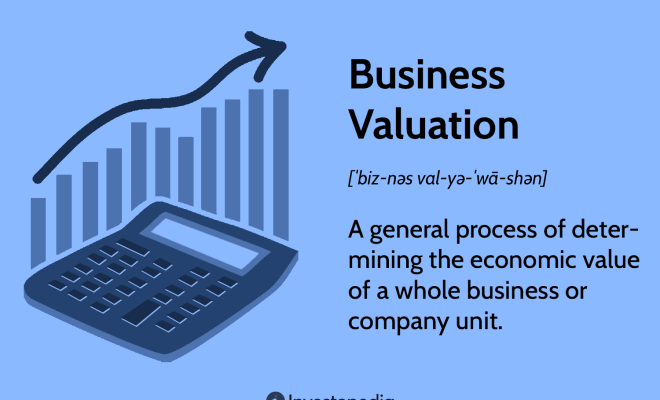How to value a business for sale calculator

Introduction:
Valuing a business is one of the most critical steps in the process of selling a company. It is essential to determine a fair price that will attract potential buyers while still maximizing the return for the seller. One popular and efficient method of assessing a business’s worth is using a business valuation calculator. This article will explore how to use a business for sale calculator, the different valuation methods available, and factors that impact overall business value.
Step 1: Choose the Appropriate Valuation Method
There are various valuation methods available for calculating a business’s worth. The three most common methods are:
1. Asset-based Approach: This method considers the business’s tangible and intangible assets and liabilities. The asset-based approach can be further subdivided into the book value method and asset accumulation method.
2. Income-based Approach: Calculates the present value of future cash flows generated by the business. The two main techniques in this approach are discounted cash flow (DCF) analysis and capitalized earnings.
3. Market-based Approach: Determines business value by comparing it to similar businesses recently sold in the market. This approach is based on using valuation multiples derived from historical transactions within an industry.
Step 2: Gather Relevant Financial Information
Before using a business for sale calculator, gather all relevant financial information about your company, such as income statements, balance sheets, cash flow statements, tax reports, and other financial documents.
Step 3: Enter the Financial Data into Calculator
Input the necessary financial data into your chosen business valuation calculator based on your selected method. The online calculator will then automatically calculate an estimated value range for your company based on specific input parameters provided.
Step 4: Review External Factors Affecting Value
Your calculated valuation may not ultimately reflect the actual value of your company because external factors may impact overall market perception. It is essential to evaluate external factors such as industry trends, geographical location, economic conditions, and the competitive landscape, to name a few.
Step 5: Make Adjustments to Valuation
Upon considering external factors impacting your business value, adjustments may be required to reflect an accurate valuation. Add or subtract value based on professional judgment and expert insight into the market conditions and individual business features.
Step 6: Seek Professional Assistance
While a business for sale calculator can provide valuable insight into your company’s value, it is wise to consult with a professional business appraiser for a more thorough evaluation. They possess the experience and tools necessary to determine an accurate assessment and provide additional context to the numbers generated by your calculator.
Conclusion:
Using a business for sale calculator is an excellent starting point when looking to value your company for sale. However, it is essential to understand that these calculators are just tools that provide approximate assessments. Incorporating expert advice and insights will add more precision to your valuation and ensure you successfully navigate the process of selling your business.






